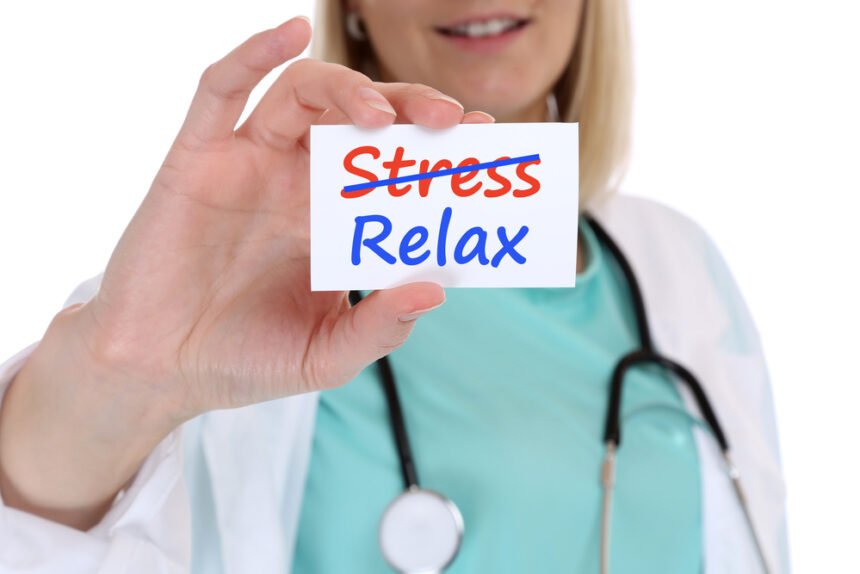Mindfulness is an ancient practice that has been taking the mainstream by storm for the past few years. While mindfulness can involve meditation, thought exercises and breathing techniques, at its core, it’s about remaining fully present in the current moment and focusing on the tasks and sensations in front of you. While it is a philosophy with its foundations in Buddhism, meditation and connectedness, plenty of western medicine practitioners like doctors and mental health professionals have taken to it with zeal, finding that it does wonders for the health of their patients.
The body and the mind are connected in so many ways, and the relationship you have with your mind has the power to affect your overall health. While mindfulness is often used in mental health practices, it can even impact your physical health in a positive way. Mindfulness could easily be the next innovative tool to revolutionize medical practices.
1. Stress Management
Mindfulness is often used to manage stress in both mental health and general medicine practices. Working to remain mindful and present throughout your day is a great way to keep the mind from racing and getting distracted. By its nature, mindfulness is a practice of calming, so keeping consistent in your efforts will naturally lead to a less stressful life.
Stress has the potential to cause all kinds of health problems including insomnia, fatigue, weight loss, weight gain and heart problems. By simply reducing stress, mindfulness can play a big role in keeping both the mind and the body healthy.
2. Mindful Recovery
One of the places that mindfulness has proven itself a truly revolutionary practice is in the process of addiction recovery. Since mindfulness is about focusing on the present moment without judgement or distraction, many patients find that mindfulness helps them gain a sense of control and understanding over their situation. It can help to separate the person from their cravings and triggers by taking pleasure in the little things all around them, which can strengthen and develop over time and lead to a sustained, healthy recovery.
3. It’s In the Blood
Mindfulness can be an effective tool in treating high blood pressure, and many doctors are beginning to turn to it as a part of the first line of defense. While it is sometimes difficult to “prescribe” in quantifiable doses, the calming and awareness benefits tend to show positive, sustainable developments for cardiovascular health. While these results may be linked to stress reduction directly, it’s also part of an entire system of mind and body connections that play off one another to improve all of the body’s systems, including the heart and blood flow.
4. Mental Health and Coping
Mindfulness doesn’t just help with mental health for those recovering from addiction — it can be great for anyone struggling with a mental illness. Since mindfulness is all about focusing on the present moment and sensations, it offers grounding techniques, meditation exercises and breathing practices that naturally help to alleviate feelings of anxiety, depression and stress.
One of the best parts of mindfulness for mental health is the ability to personalize your practice to your specific needs. Everyone is different, and people require coping skills that work with them. Mindfulness offers that flexibility.
5. Body Awareness
As a patient, practicing mindfulness can make you much more aware of the immediate sensations, functions and feelings within your own body, which can help get to the root of problems much quicker and easier. By adopting a mindfulness practice, you learn to relax completely into the moment and notice everything around you — so when something feels off, you can locate it right away and get the attention you need much sooner.
6. Longevity and Sustainability
One of the reasons why mindfulness is such a great tool for health professionals to “prescribe” is that it works in the long term. While it does take work to maintain the sustainability of a thriving mindfulness practice, it’s different from traditional medications and tools in that it grows with each person as they continue on their journey. When a patient maintains a mindfulness practice that works for them, they’re more likely to stay healthy with time.
7. A Healthier Population
Although it may be hard to quantify, mindfulness and the awareness around self care practices like it have slowly been creating a healthier and more aware population, especially among the younger generations. Whether patients already come into mental health or general practitioners’ offices with a mindfulness practice already in place or are familiar with the concept beforehand, the growing awareness around mindfulness is slowly making it much easier to find, treat and manage the health of all kinds of patients.
Mindful Health
Mindfulness practices are fantastic for personal development and wellness, and they definitely have a place in the world of healthcare. Patients can make it their own, do what works for them and stick with it for years. From stress management to addiction recovery, this wellness strategy seems like it’s here to stay.









